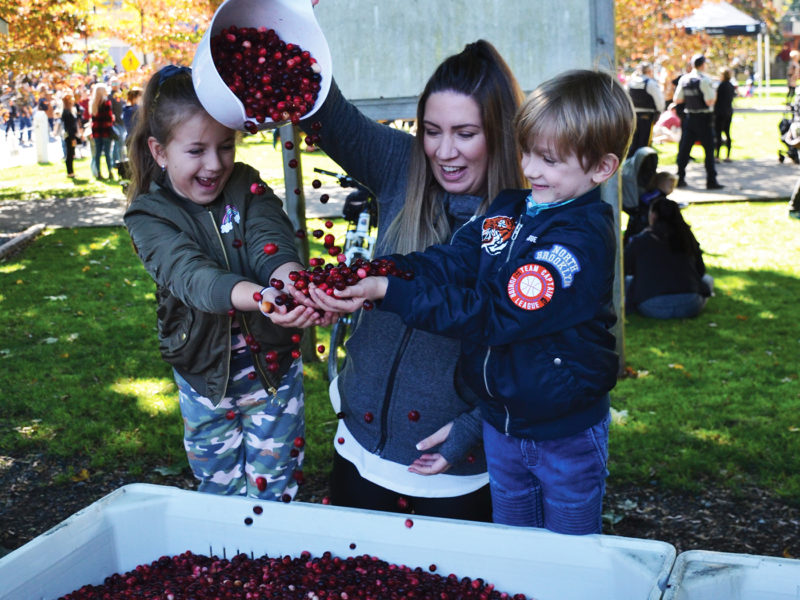BC cranberry growers are expecting a crop closer to usual volumes this year after cold weather in 2019 cut the harvest in half.
The province typically produces about a million barrels a year, but in 2019 marketed production as reported by Statistics Canada was just 672,100 barrels. Per-acre yields also fell, dropping from 211 barrels in 2018 to 100 barrels last year.
“It’s looking like it’s going to be a decent crop, much better than last year,” said Fraser Valley grower Jack DeWit, a member of the BC Cranberry Marketing Commission. “Last year was a complete disaster.”
The commission announced that harvest kicked off on September 15, but DeWit expected to begin gathering berries from his own farm this week. Among the reasons for his delay was a blanket of smoke from wildfires in the US that covered the valley in mid-September that stalled the colouring up of fruit.
However, sales this year have been good and he expects strong demand as people continue to stay home out of concern regarding COVID-19.
“Sales have been good for Ocean Spray and some of the independents. People have stayed home and bought more off the grocery shelves,” he said. “That’s good news, because we were definitely long on product.”
A report on the province’s cranberry sector co-authored by Sandra Behm, senior appraiser with Farm Credit Canada in Abbotsford, noted that farm profitability remains “fragile” thanks to low prices. “Prices have hovered around an average of US$0.30-$0.35 a pound since 2017 and projected to remain within this range in the next few years,” the report stated, noting that poor yields in BC last year had pushed the per-acre value of production to an all-time low of around $5,150 (or about US$0.40 a pound).
DeWit said the pricing situation has improved this year thanks to strong demand that has eaten into stocks and brightened the outlook.
“It looks like prices are starting to move up,” he says. “Ocean Spray has exceeded their margin expectations, and they’re hoping to give some more money to the producers.”


 Merlot, Pinot Gris tops in BC
Merlot, Pinot Gris tops in BC